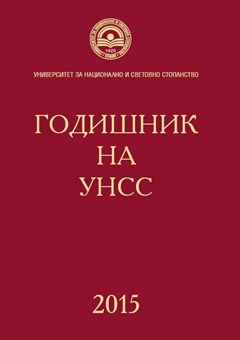Предизвикателствата на неопределеността пред философията и теорията на икономиката
Challenges of Uncertainty to Philosophy and Theory of Economy
Author(s): Borislav GradinarovSubject(s): Economy
Published by: Университет за национално и световно стопанство (УНСС)
Summary/Abstract: The work has set the task to analyze the emergence and evolution of the problem of uncertainty in scientific knowledge. The focus is on approaches and methods for the study of randomness, probability and chaos in the social field and in particular in the philosophy and theory of economics. The thesis has been argued that attention to uncertainty and attempts to define it evolve with the complexity of social relations in the era of the great geographical discoveries, and especially with the development of economic relations after 14th-15th centuries. The first person to direct his attention to the problem of randomness is the creator of the double-entry book keeping system Luca Pacioli, formulating a seemingly fun at first glance task-game. But it marks the beginning of a powerful tradition for the study of future uncertain events, in which the names of Pascal, Fermat Bernoulli dynasty, Gauss, Quetelet, Galton, Poincare, David Lorenz and others stand out. Gradually the idea is formed that the study of uncertainty should not be viewed only as a fun effort to solve some or other mathematical paradoxes, but as a serious and important to practice effort. All previous efforts to be given one or another conception of the nature of uncertainty and possible strategies for its use or control still bear the scars of the Enlightenment paradigm of linear thinking. That is why so far neither the philosophy of economics, nor economic theories have been able to build an adequate theory to provide reliable navigation guidance in an increasingly complex, multidirectional, dynamic and elusive of accurate predictions modern world.
Journal: Годишник на УНСС
- Issue Year: 2015
- Issue No: 1
- Page Range: 163-196
- Page Count: 33
- Language: Bulgarian

